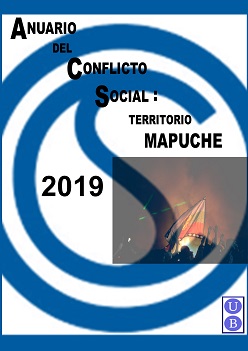Mapuche Protest beyond (and hither) Chile’s Social Outbreak
DOI:
https://doi.org/10.1344/ACS2020.11.4Keywords:
repertoires of contention, social movement, Mapuche movement, indigenous policies, Mapuche people, social outbreakAbstract
In this article, we undertake the study of the various repertoires of contention of the Mapuche people during 2019 in Wallmapu. We look into the dynamics of their own ability for mobilisation, historically built up in the rural areas, as opposed to the escalation of urban protest observed in Chile’s recent social outbreak, exemplified in the protest cycle that took place in 2018 in the face of the killing of rebel Camilo Catrillanca by police forces. The results highlighted a conflict focused on anti-forestry protests and lawfare, which can be seen in three different territorial realities in the Wallmapu area. The article concludes that, even if the recent social outbreak opens up new opportunities for the Mapuche cause, it turns out to be more of a historical milestone for the Chilean people and the urban Mapuches, and it has had little impact on the protest actions going on in rural areas for decades. Despite this, our study highlights de-monumentalisation as an urban protest dynamics arising from social outbreak, in line with the Mapuche de-colonial project deployed by the most important Mapuche organisations. Finally, this paper reflects upon the urgency to draft a new social contract, both for the Mapuche and the Chilean peoples.
Downloads
Published
How to Cite
Issue
Section
License
Copyright (c) 2021 Nicolás Rojas Pedemonte, Diego Gálvez

This work is licensed under a Creative Commons Attribution 4.0 International License.
AUTHORS RETAIN COPYRIGHT. CREATIVE COMMONS
The authors who publish in this journal agree to the following terms:
- The authors retain the copyright and grant the journal the right of first publication of the work, which will be disseminated following the Creative Commons Attribution license.
- Authors are free to establish additional independent contractual agreements for the non-exclusive distribution of the version of the work published in the journal (such as publication in an institutional or thematic repository, their personal website or a book), provided have your initial publication in this journal recognized.
- Texts will be published under a Creative Commons Attribution License that allows others to share the work, provided they include an acknowledgement of the work’s authorship, its initial publication in this journal and the terms of the license.
- Self-archiving of pre-print and post-print versions is allowed.
Privacy statement
The email addresses and names entered in this publication will be used exclusively for the purposes declared and will not be used for any other urposes or made available to third parties.







